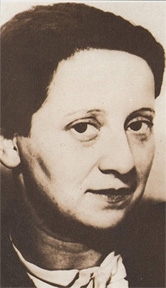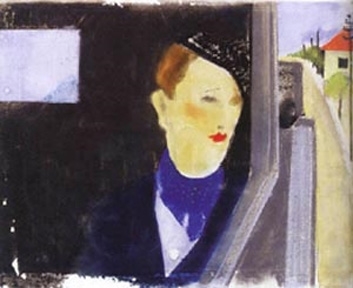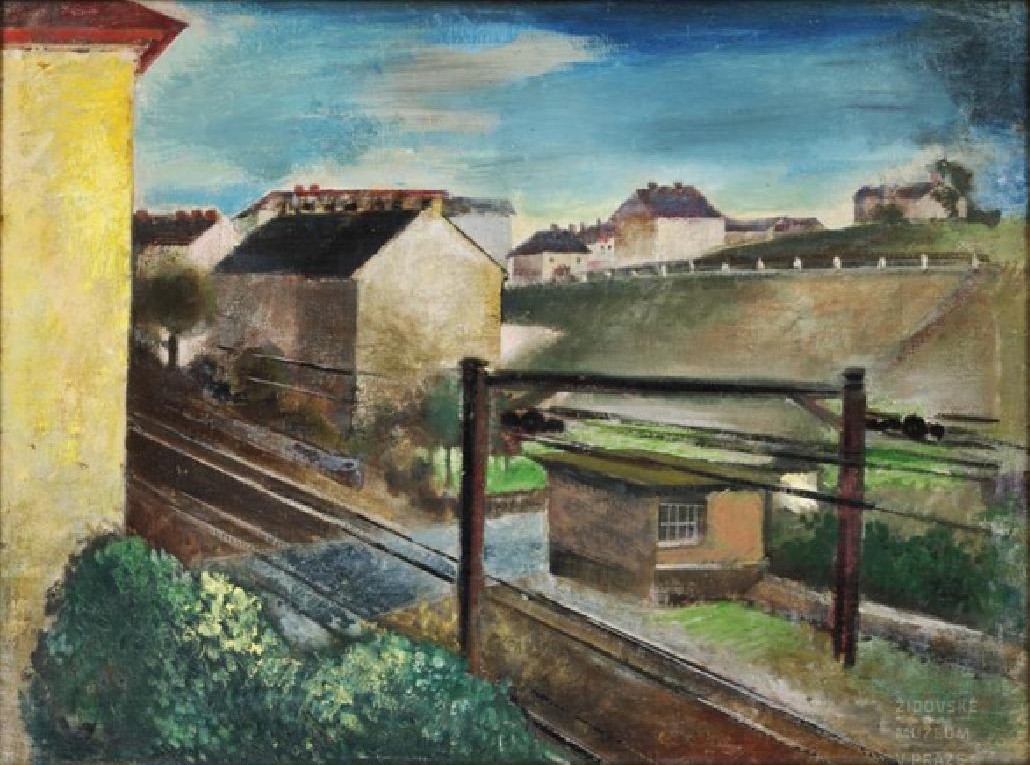 |
| Photo of Friedl Dicker-Brandeis Unknown author / [Public domain] via Wikimedia |
On October 9th, 1944, a remarkable woman died in the Nazi gas chambers. She is not only my hero, but she was a hero in one of the truest senses of the word.
In 1942, she and her husband Pavel were taken by the Nazis to Terezin Concentration Camp with a limited amount of baggage. Many people brought clothing, special belongings and valuables with them. But Friedl thought not of her own needs, but of the needs of the children who would be interned with her. They would be lonely, frightened, angry and sad, and they would need a way to express those feelings.
Friedl was a talented artist. She had studied many different art forms for years, everything from textiles and bookbinding to watercolor and charcoal. And so naturally she stuffed her bags with art supplies and used art to help the children. Unbeknownst to the Nazis, Friedl and the other teachers interned at Terezin taught children forbidden subjects. Friedl helped the children to escape from the harsh world and retreat to a world of creativity, and, unlike the other teachers, she did it for free.
 |
| Dáma v automobilu (cca 1940) Friedl Dicker-Brandeis / [Public domain] via Wikimedia |
Friedl did not expect thanks for what she did. She taught because the children needed a teacher. Because of this she was not only a teacher, but a bringer of hope.
Too often do people expect thanks or reward for something kind that they've done. At its essence, a kindness is not something done for personal gain; it's something done purely for the benefit of another. Many people don't seem to realize that; Friedl Dicker-Brandeis did. She selflessly gave her time, kindness, supplies and talent to the children of Terezin Concentration Camp, and for that she ought never to be forgotten.
It can be hard to remember to be kind. Our world is one where people are concerned more for themselves than for others, and sometimes thoughtfulness is something that simply slips our minds.
 |
| Nádraží Freidl Dicker-Brandeis / [Public Domain] via Wikimedia |
It is important that we strive to prevent that from happening. Friedl's kindness was a large one under extreme circumstances, but kindness isn't about how much you give- it's about how you give it. If you act kindly while expecting recognition and praise, you are doing it more for yourself than anyone else. But if you act purely out of thoughtfulness and consideration for another- that is a true kindness.
Friedl's kindness came directly from her heart. She didn't teach for the recognition- she taught because she knew that the children needed her help.
Learning about Friedl Dicker-Brandeis was inspiring because her story shows that hope can bloom even in the coldest of environments; that creativity can change the world, even if that world is the dream world of a child; and above all that even in the darkest of situations, the kindness and goodness inside of us can find a way to shine.
Page created on 4/22/2015 7:46:08 PM
Last edited 7/29/2020 7:17:07 AM

The MY HERO Project partnered with StageofLife.com for their Student Writing Contest Question:
We are pleased to feature Taylor Copeland's winning essay.
Click here to listen to the Friedl Dicker-Brandeis story